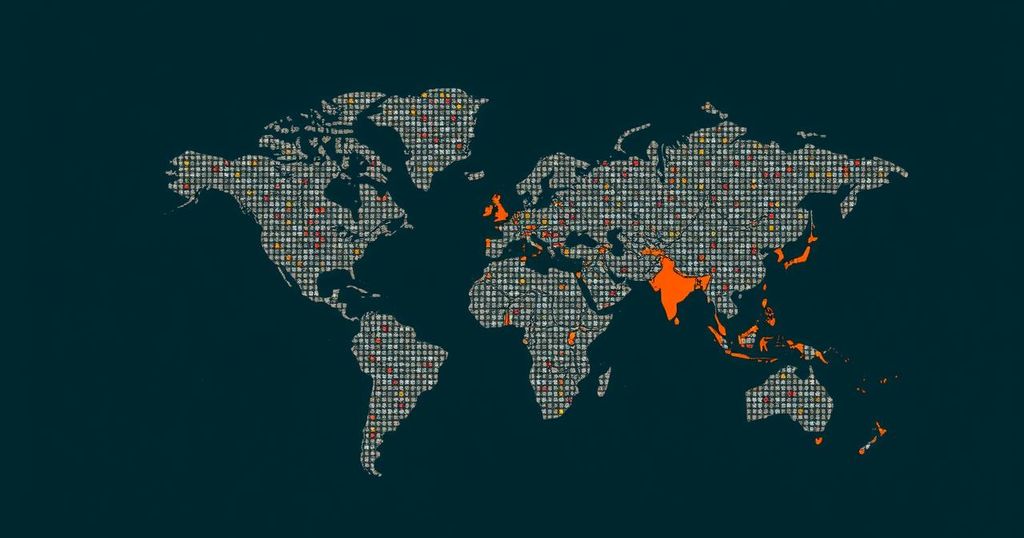The International Criminal Court (ICC) is facing significant challenges, having prosecuted only five individuals since its inception. Recently, charges have been brought against high-profile leaders like Vladimir Putin and Benjamin Netanyahu, providing the court a chance to enhance its relevance. However, the ICC’s impact has been limited by inefficiencies and lack of funding, while a growing global movement toward universal jurisdiction may assume the mantle of prosecuting atrocity crimes.
The International Criminal Court (ICC), currently situated in The Hague, is grappling with significant challenges, as evident from its recent trials. Notably, there exists only one active case involving Mahamat Said, accused of committing war crimes in the Central African Republic. Since its inception in 2002, the ICC has delivered justice to a mere five individuals, all from sub-Saharan Africa, raising concerns over its effectiveness. According to Chris Stephen, the ICC faces the risk of being perceived as a promising concept that ultimately faltered in execution.
Nevertheless, the ICC is now presented with an unprecedented opportunity to enhance its relevance. Chief Prosecutor Karim Khan has issued charges against major leaders, including Russian President Vladimir Putin and Israeli officials such as Prime Minister Benjamin Netanyahu. These developments signal a potential shift in the ICC’s role as a vital player in global accountability for atrocity crimes.
The ICC, unfortunately, is beset by inefficiency and resource constraints. For instance, the prolonged investigation into Ugandan atrocities demonstrates a lack of timely prosecution, with no Ugandan suspects currently apprehended despite the process beginning in 2004. Furthermore, the court operates with insufficient funding and limited investigative capabilities, exacerbated by the absence of several powerful nations, including the United States, China, and Russia, as member states. Critics argue that this impairs the ICC’s effectiveness in holding perpetrators accountable.
While skepticism surrounds the ICC’s ability to carry out more prosecutions, there is an emerging global movement that may assume responsibility for adjudicating atrocity crimes. More than twenty nations now assert universal jurisdiction, enabling them to prosecute heinous acts committed globally. The United States recently joined this initiative, paving the way for more trials across various jurisdictions.
Moreover, national courts in countries formerly plagued by atrocities are increasingly taking initiative to prosecute offenders, extending the reach of accountability beyond The Hague. Notably, as legal experts assist Ukraine in gathering evidence against war crimes, a hopeful precedent emerges for swift justice akin to past successful prosecutions, such as the trials of Khmer Rouge leaders in Cambodia.
The International Criminal Court (ICC) was established in 2002 as the world’s first permanent tribunal for prosecuting atrocity crimes, including war crimes, genocide, and crimes against humanity. Despite significant expectations, the ICC has struggled to attain practical credibility, having successfully prosecuted only a handful of defendants, all from sub-Saharan Africa. The court faces significant logistical hurdles, including underfunding and the absence of major world powers as members, limiting its authority and efficacy. Critics argue that the ICC has not evolved beyond a theoretical concept of justice due to these operational inefficiencies.
In conclusion, while the International Criminal Court grapples with issues of efficacy and funding, recent moves to charge significant leaders present a potential turning point in its role on the global stage. The growing resolve among various nations to enact universal jurisdiction exemplifies a shifting landscape of accountability. Consequently, even if the ICC struggles with prosecution, other legal avenues may effectively tackle atrocity crimes, leading to a collective improvement in global justice mechanisms.
Original Source: www.channelnewsasia.com






